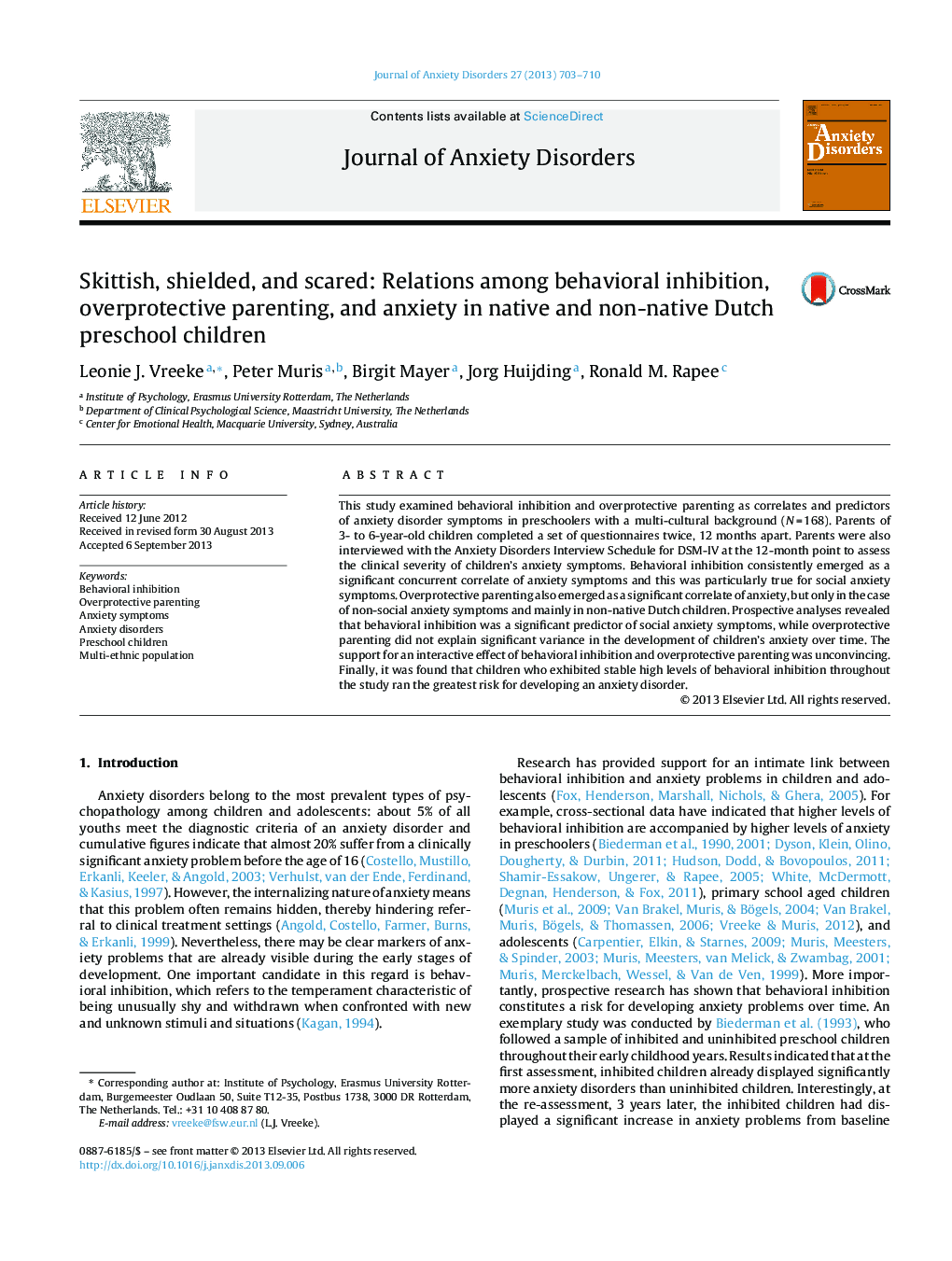| کد مقاله | کد نشریه | سال انتشار | مقاله انگلیسی | نسخه تمام متن |
|---|---|---|---|---|
| 909395 | 917281 | 2013 | 8 صفحه PDF | دانلود رایگان |

• Examined cross-sectional and prospective relations between behavioral inhibition and overprotective parenting and childhood anxiety symptoms in preschool children.
• Behavioral inhibition emerged as a clear predictor of anxiety disorder symptoms, especially social anxiety.
• Stable high inhibited children ran the greatest risk for developing an anxiety disorder.
• The contribution of overprotective parenting to children's anxiety symptoms was less consistent.
• Differences between native and non-native Dutch children were found with regard to temperament, parenting, and anxious symptoms.
This study examined behavioral inhibition and overprotective parenting as correlates and predictors of anxiety disorder symptoms in preschoolers with a multi-cultural background (N = 168). Parents of 3- to 6-year-old children completed a set of questionnaires twice, 12 months apart. Parents were also interviewed with the Anxiety Disorders Interview Schedule for DSM-IV at the 12-month point to assess the clinical severity of children's anxiety symptoms. Behavioral inhibition consistently emerged as a significant concurrent correlate of anxiety symptoms and this was particularly true for social anxiety symptoms. Overprotective parenting also emerged as a significant correlate of anxiety, but only in the case of non-social anxiety symptoms and mainly in non-native Dutch children. Prospective analyses revealed that behavioral inhibition was a significant predictor of social anxiety symptoms, while overprotective parenting did not explain significant variance in the development of children's anxiety over time. The support for an interactive effect of behavioral inhibition and overprotective parenting was unconvincing. Finally, it was found that children who exhibited stable high levels of behavioral inhibition throughout the study ran the greatest risk for developing an anxiety disorder.
Journal: Journal of Anxiety Disorders - Volume 27, Issue 7, October 2013, Pages 703–710